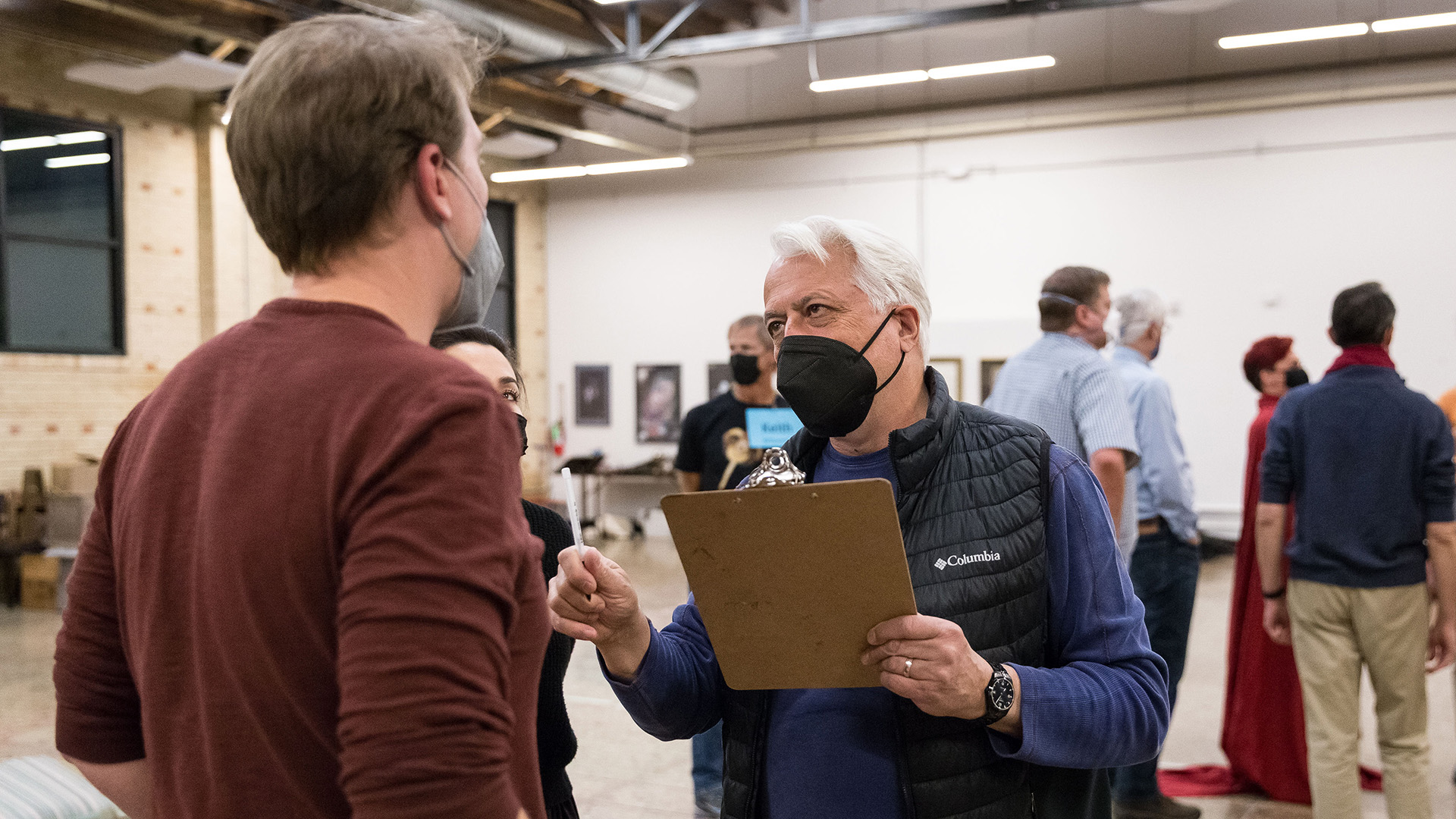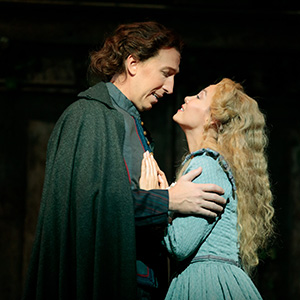Il trovatore 101 – Q&A with Christopher Mattaliano

For this production of Il trovatore in Concert, we’re thrilled to welcome back director Chris Mattaliano, who directed our production of Rigoletto in 2022 and returns to share another Verdi classic with Denver audiences. Keep reading below to learn all about Chris and the production, including how the vision for this unique format came about and how his middle school Spanish teacher set him on a path toward a career in opera.
Get tickets to Il trovatore in Concert, on stage for two performances only on April 26 and May 4>>
This production of Il trovatore is presented in a unique, streamlined format—90 minutes, performed straight through. What inspired this approach, and how do you think it enhances the audience’s experience?
Originally, Il trovatore was planned as a fully staged production, but we had to pivot to something more feasible—something that aligned with what many opera companies are doing these days to match their ambitions with their resources. As I thought about how to reimagine the piece, I found inspiration in two things: the enduring popularity of the opera and the increasing interest in shorter, more concentrated performances. Attention spans are changing, and I reached out to Greg and Ari with a creative idea—what if we did something between a concert and a staged production? I asked if I could write a narration and incorporate a dancer to help tell the story. They were excited and gave the green light, and that’s how this 90-minute version was born.
This format keeps all the major highlights, trims some choruses and recitatives, and adds a narrator who threads together the action—filling in key plot points between the sung scenes. We’ve also created a striking visual concept, with the orchestra on stage, surrounded by platforms where the action unfolds. We’re using lighting creatively—spotlighting soloists, featuring the harp during the tenor aria, and highlighting the percussionists during the famous Anvil Chorus. The chorus will be in black, while each principal wears bold colors that reflect their character. The result is a fast-paced, visually engaging experience that captures the opera’s drama and grandeur, while making the plot clearer and the experience more direct.
What are you most excited about when it comes to directing Il trovatore?

I’ve directed Il trovatore five or six times over the last 40 years—the first was in 1983. It’s a piece I keep returning to, and each time I find something new to explore. Verdi’s music has a way of revealing more of itself the longer you spend with it. I had a professor who once said, “music is a treasury of the familiar,” and I’ve found that to be true—especially with Verdi. The more you live with a piece, the deeper your relationship becomes. It’s like reconnecting with an old friend—you pick up right where you left off, but with even more to talk about.
I had a wonderful experience directing Rigoletto at Opera Colorado, and I’m thrilled to return for this project. Greg has been a long-time colleague, and Ari is not only a dear friend but also a gifted conductor and collaborator. This cast is very exciting—some singers are new to me, others I’ve worked with before, and I’m looking forward to diving into the piece with all of them. Verdi remains one of my favorite composers, and Il trovatore is a shining example of his ability to marry explosive drama with unforgettable music.
You’ve dedicated a large part of your career to teaching—how does that work enrich your life as an artist and director?
It’s a real gift to be able to do both. I’ve had the privilege of directing at major opera companies while also teaching at institutions like Juilliard and Yale. Working with young singers is deeply rewarding. In fact, the bass singing Ferrando in this production, Young Bok Kim, was one of my students at Juilliard. He emailed me recently to say how meaningful it is to work together again after all these years. These kinds of moments are incredibly special, and they happen more and more often as time goes on.
Teaching keeps me sharp—it requires a different kind of listening, observation, and communication. I spend weeks in a classroom with developing artists, and then step into a rehearsal room with seasoned professionals. Each environment feeds the other. What I learn from working with young singers informs how I direct, and what I experience in production helps me better guide students. I feel incredibly fortunate to have a career that allows me to live in both worlds.
Your bio mentions gratitude to your 7th-grade Spanish teacher for “starting it all.” Can you tell us that story?
I grew up in a large Italian American, working-class family in New Jersey—one of six kids. Our schools had strong music programs, and in seventh grade, I was required to take a foreign language. I chose Spanish and was completely terrified of my teacher. The only way I could get out of Spanish was to join the band. So, I asked my older brother what instrument plays that solo in the overture to The Who’s Tommy, and he said, “French horn.” I had no idea what that was, but I asked the band director if I could play it—and I did, for almost fifteen years.
That’s how music entered my life. In college, I got interested in theater and earned a degree in directing. Then I fell madly in love with opera and began pursuing it seriously in the 1980s. I wish I could remember the name of that Spanish teacher—I owe her a lot. That moment in seventh grade set me on the path to a lifelong career in the arts.
If you could describe Il trovatore in three words, what would they be?
Larger-than-life. Passionate. Explosive.
(Okay, maybe six words.)
–
See Chris’s vision come to life in Il trovatore in Concert, on stage April 26 and May 4>>


